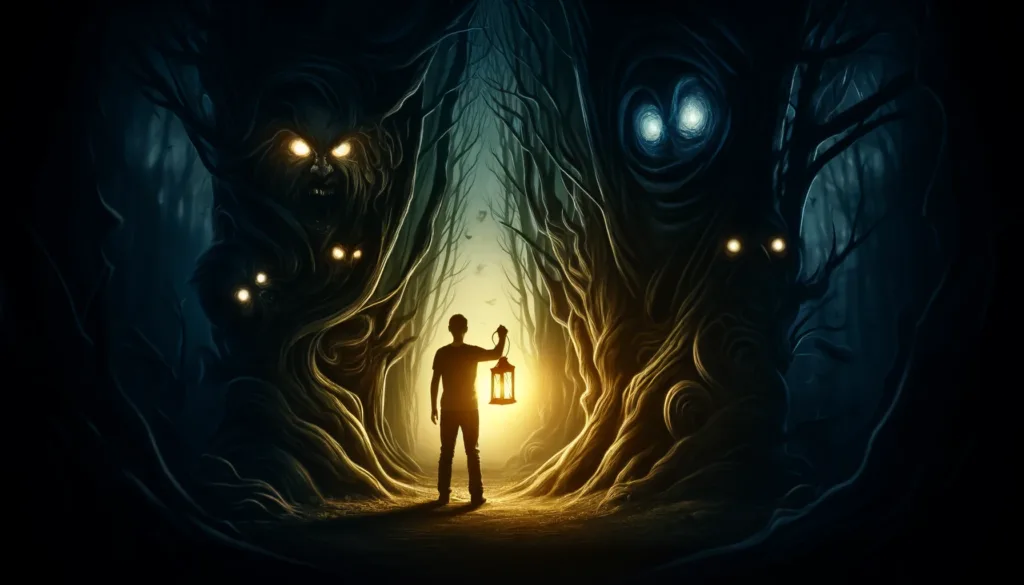Finding Purpose in a Difficult Life

Life is undeniably difficult. To justify the struggles and hardships we face, it’s essential to engage in something truly meaningful. This idea is woven into many timeless stories, like the tale of Jonah. Jonah’s story emphasizes an ethical duty to straighten things up, warning that failing to do so leads to regret. This message resonates across various narratives, underscoring the importance of pursuing worthwhile endeavors.
Harry Potter and the Complexity of Goodness
Let’s shift to a modern tale, Harry Potter. Harry is an intriguing character learning to become a wizard at a magical castle. What’s fascinating about Harry is that he’s not inherently good; he has a piece of Voldemort within him. This duality highlights that true goodness isn’t about blindly following rules. To be genuinely good, one must understand malevolence. This understanding helps withstand evil, revealing a deeper Jungian idea: to develop fully, we must acknowledge and confront our shadow, the parts of ourselves we prefer to ignore.
Confronting Our Inner Darkness

Jungian psychology teaches that our shadow consists of traits we don’t want to admit. By studying history and imagining ourselves as perpetrators rather than heroes, we gain a sobering perspective. Recognizing our capacity for monstrous acts fosters a respectful and cautious attitude. If we believe we’re harmless, we lack the incentive to be careful and considerate. Embracing our potential for harm encourages us to act responsibly and thoughtfully.
The Fragility of Civilization
Civilization is a delicate balance, a miracle that functions smoothly despite the chaos lurking beneath. In Harry Potter, the basilisk symbolizes this hidden chaos. Our seemingly stable lives rest on thin ice, with chaos just below the surface. Recognizing this fragility makes us appreciate the stability and peace we often take for granted. Understanding the ever-present potential for disorder fosters a sense of gratitude for the miraculous order we enjoy.
The Innate Fear of the Unknown
Encountering the unknown often paralyzes us, much like how the Medusa or basilisk turns one to stone. This reaction is deeply rooted in our primal instincts. Our ancestors developed acute vision to detect hidden predators, emphasizing our innate fear of snakes and the unknown. This fear is embedded in us, influencing our responses to threats. Overcoming such fears requires courage and a willingness to face what frightens us.
Harry Potter’s Heroic Journey
In the Harry Potter series, Harry’s confrontation with the basilisk is a pivotal moment. He ventures into the depths, risking his life to save Ginny, much like the timeless tale of St. George and the dragon. This hero’s journey, though mythical, reflects real dangers. Facing the unknown and confronting fears is perilous but essential for growth and survival. Harry’s encounter with the basilisk underscores that these threats are genuine, and the journey to face them is fraught with real risks.
The Reward of Facing the Unknown
Historically, those who faced dangers and protected others were often rewarded with admiration and affection. This narrative is deeply ingrained in our psyche. The idea that bravery and the willingness to confront fears make one attractive and respected is a recurring theme. Developing into a person who can stand against the unknown not only benefits oneself but also makes one appealing to others.
Embracing the Hero Within

By embracing these timeless lessons, we understand that life’s difficulties require us to pursue meaningful and worthwhile goals. Confronting our inner darkness and the chaos around us helps us find true purpose. This journey, although dangerous, is essential for personal growth. By facing our fears and understanding our capacities for both good and evil, we become the heroes of our own stories.